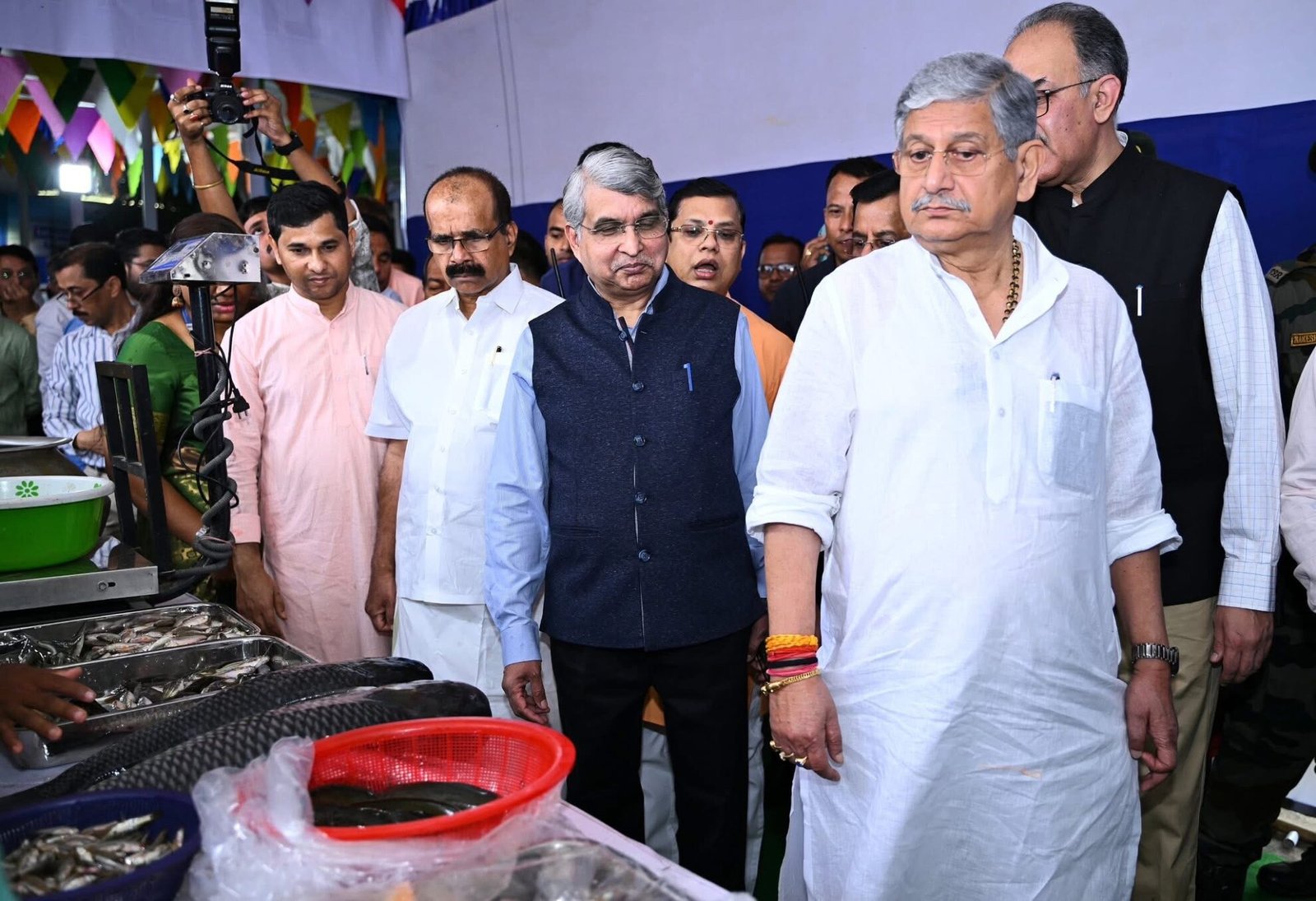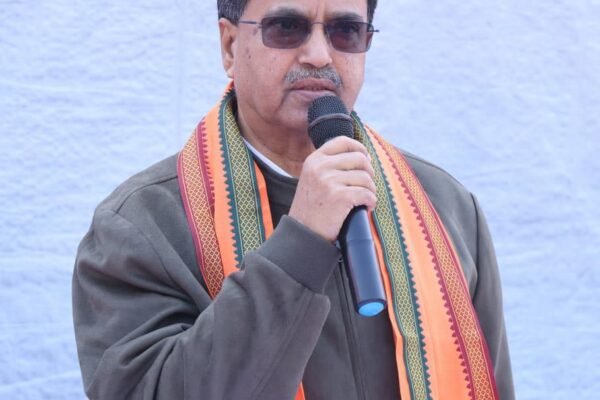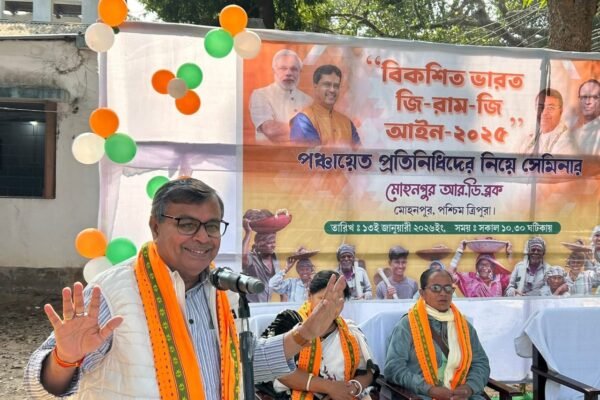Agartala, May 19, 2025: Union Minister of Fisheries, Animal Husbandry and Dairying, Rajiv Ranjan Singh on Sunday announced that Tripura will soon host the country’s second Organic Fisheries Cluster, following Sikkim, marking a significant push toward sustainable aquaculture in the Northeast.
The announcement was made during a ceremony in Agartala, where the foundation stone was laid for an Integrated Aqua Park in Kailashahar, Tripura. The project, sanctioned under the Pradhan Mantri Matsya Sampada Yojana (PMMSY), is valued at Rs 42.4 crore.
Highlighting the Centre’s development focus in the region, Singh said Tripura has undergone remarkable transformation over the past decade under the leadership of Prime Minister Narendra Modi. “Every state in the Northeast is witnessing similar progress. PM Modi has directed all Union ministers to prioritize development in the region,” he said.

The minister underscored the importance of fisheries in boosting the rural economy. “About 3 crore people are engaged in fish production nationwide. The sector contributes nearly 9% to the agricultural economy, and in Tripura, there is immense potential to scale up fish farming,” he said.
Singh emphasized that the Narendra Modi government, since 2014, has made significant structural reforms by separating the fisheries and animal husbandry sectors from agriculture, enabling dedicated policy focus. He noted that India’s fish production has nearly doubled in the past decade—from 96 lakh tonnes in 2013–14 to 184.02 lakh tonnes in 2023–24.
Tripura, too, has seen significant growth in inland fish production, rising from 3.7 lakh tonnes in 2013–14 to 6.4 lakh tonnes in recent years.
Referring to the country’s first Organic Fisheries Cluster established in Soreng district, Sikkim, Singh declared that a similar initiative will be introduced in Tripura soon. “This will boost organic fish production and open avenues for innovation in aquaculture,” he said.
The minister urged authorities to ensure the timely completion of the Integrated Aqua Park so that local communities can start reaping its benefits at the earliest.









